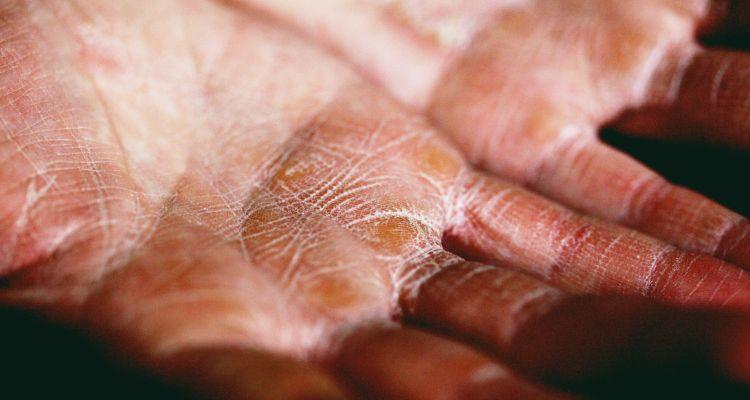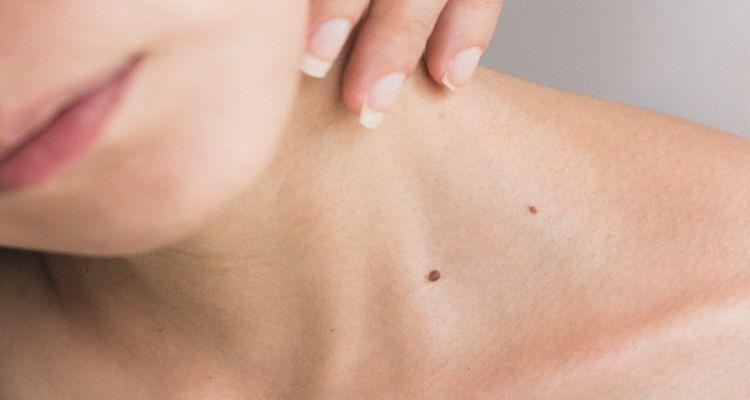
Angioedema - symptoms, causes and therapy
Updated on 02. November 2023
Sudden swelling of the skin or mucous membrane can indicate angioedema, also called Quincke's oedema. About 10-20% of the population will suffer from this condition in their lifetime. Angioedema is not a simple disease, as life-threatening side effects can occur.
Angioedema Brief overview:
- Causes: Angioedema can be caused by an allergic reaction, genetic predisposition, side effects of medication or certain diseases
- Symptoms: Swelling, usually of the face, lips, eyelids, hands, feet or genitals. Also in the throat, respiratory tract or gastrointestinal tract.
- Prevention: Identification and avoidance of triggers that can trigger an allergic reaction
- Treatment: In acute cases, emergency treatment with antihistamines and corticosteroids may be needed to relieve symptoms and reduce swelling
What are the symptoms of angioedema?
There are two different forms of angioedema, the symptoms of which differ somewhat from each other. In general, all diseases have in common that the tissue swells significantly in certain areas. Frequently affected regions are:
- Back of hands and feet
- Face with eyelids or lips
- Neck with larynx
- Genitals
- Mucous membranes in the mouth, throat or respiratory tract
- Gastrointestinal tract
While angioedema of the face is usually uncomfortable, swelling of the airways can be life-threatening. The swelling may cause mild pain. Common accompanying symptoms of angioedema are [wheals](), which cause severe itching. These occur mainly in episodes and form on any part of the body for several hours. If the intestines are affected, nausea and vomiting may occur.
What is the cause of angioedema?
Angioedema is an immune disorder. The cause of the symptoms is an excessive release of certain hormones. Two different forms of angioedema are classified, which are differentiated according to the hormone that triggers them.
- Mast cell-mediated or histaminergic angioedema: The swelling is triggered by a release of histamine in the body. Histamine is a chemical messenger that is released during allergic reactions and other inflammatory processes in the body. Histamine can cause pain, itching, swelling and redness of the skin, which can lead to angioedema. This is an immune disorder acquired during life.
- Bradykinin-mediated angioedema: These conditions are caused by an overproduction of the hormone bradykinin in the body. Bradykinin is a chemical messenger that is normally released during physical exertion and injury to reduce pain and inflammation. However, in bradykinin angioedema, the body produces abnormally high levels of bradykinin, which can cause pain, swelling and nausea. No wheals are formed on the skin in this condition. This form of angioedema can be inherited.
What is hereditary angioedema?
Hereditary angioedema (HAE) is a rare congenital bradykinin-mediated disease. It can affect children and adults at any age. The swelling can occur in the larynx and be accompanied by shortness of breath and choking. This form of angioedema usually presents in the first ten years of life.
What factors trigger angioedema?
Angioedema can be triggered by a variety of factors. The main causes are:
- Allergies (e.g. to food, insect bites, medications).
- Hypersensitivity reactions to certain substances
- Autoimmune diseases
- [Hives]()
- Heredity
Angioedema can have serious consequences. Therefore, the cause of this condition should be identified. This will allow appropriate treatment and prevent recurrence. In several cases, the trigger of the angioedema cannot be found.
How is angioedema treated?
A doctor should always be consulted to treat angioedema. The diagnosis is supported by a blood test. Inhibitors against the activity of the hormones are used for treatment.
Which doctor should I see for angioedema?
Depending on the severity and location of the angioedema, a choice should be made between different doctors. In case of acute shortness of breath and severe swallowing difficulties, an emergency doctor must be consulted immediately. In the case of non-critical angioedema, an internist may be the right contact because he or she specialises in the diagnosis and treatment of internal diseases. Depending on the cause of the disease, further treatment by a dermatologist or clinical immunologist is advisable.
What medicines help with angioedema?
The treatment of angioedema depends on the triggering hormone, the severity of the symptoms and the cause. There are some general approaches to treating histaminergic angioedema:
- Antihistamines: these medications can help reduce swelling and relieve itching.
- Corticosteroids: In more severe cases, a doctor may prescribe corticosteroids to reduce swelling and relieve inflammation.
- Epinephrine: In cases of shortness of breath or swelling in the throat, a doctor may give epinephrine as an injection to improve breathing and reduce swelling.
These drugs do not work for bradykinin-mediated angioedema. Inhibitors from blood plasma are mainly administered. In cases of hereditary angioedema (HAE), long-term treatment is recommended to reduce the frequency and severity of swelling.
How long does it take to heal from angioedema?
As a rule, angioedema disappears within 72 hours. In rare cases, it can take up to 7 days for the symptoms to disappear completely. The exception to this is chronic angioedema, which can last for several months. After healing, the skin is unchanged from its condition before the disease.
What home remedies can help with angioedema?
Home remedies are not sufficiently effective for angioedema, but they can support the treatment. The hormones histamine and bradykinin cause the blood vessels to dilate and become more permeable. In angioedema, cooling counteracts this effect and can contract the blood vessels again. Curd compresses have proved particularly effective as a cooling and fluid-removing home remedy. [Witch h]()azel has an astringent and cooling effect and relieves itching at the same time. In hives with angioedema, witch hazel also helps to inhibit inflammation. The active ingredient witch hazel can be used as a watery poultice or as a cream. To soothe the skin, the home remedies sage, arnica or aloe vera can support the medical treatment.
How is angioedema diagnosed?
Angioedema is diagnosed by the patient's clinical symptoms and medical history. In some cases, blood tests or skin tests may also be performed.
How quickly does angioedema occur?
Angioedema can occur suddenly and quickly, especially if it is triggered by an allergic reaction. However, in some cases it can also occur more slowly.
Can stress trigger angioedema?
There is no direct evidence that stress causes angioedema, but stress can affect the immune system and possibly lead to increased susceptibility to allergic reactions or other health problems.

Hameli's vision
Go to Vision
Vaginal Fungus - Symptoms, Causes & Treatment
Go to Vaginal mycosis
Dry skin - What helps against it?
Go to Dry skin
Witch hazel - varieties, cutting, effect, & products
Go to Witch Hazel
Recognise and treat coccygeal fistula
Go to Coccygeal fistula
Anal fistula - symptoms, causes & treatment
Go to Anal fistula
Labial tear - Symptoms, Causes & Treatment
Go to Labial tear
Intertrigo - Cause, symptoms and treatment of the skin wolf
Go to Intertrigo
Anal abscess: symptoms, recognition, causes & treatment
Go to Anal abscess
Chickenpox - symptoms, vaccination, infection and treatment | Hamelis
Go to Chickenpox
Seborrhoeic Eczema - Symptoms, Causes & Treatment
Go to Seborrhoeic eczema
Anal fissure - Symptoms. Causes & home remedies
Go to Anal fissure
Vaginal dryness - symptoms, causes & treatment
Go to Vaginal dryness
Hives - Cause, symptoms and treatment
Go to Hives
Hamelis experts
Go to Experts
Rose lichen - symptoms, causes and treatment
Go to Rose lichen
Scars - treatment and removal
Go to Scar
Ringworm: Symptoms, Causes & Treatment
Go to Ringworm
Scabies - symptoms, cause and treatment
Go to Scabies
Treat anal eczema sustainably
Go to Anal eczema
Eczema - symptoms, causes and treatment
Go to Eczema
Contact allergy - symptoms and treatment
Go to Contact allergy
Treat stubborn nail fungus
Go to Nail fungus
Crabs - Intimate area, symptoms & treatment
Go to Crabs
Pruritus - Causes, symptoms and treatment
Go to Pruritus
Rosacea on the face - symptoms, causes and treatment
Go to Rosacea
Perioral dermatitis - symptoms, treatment & home remedies
Go to Perioral dermatitis
Skin fungus - cause, symptoms and treatment
Go to Skin fungus
Perineal tear - origin, degrees & causes
Go to Perineal laceration
Anal prolapse: symptoms, causes, treatment
Go to Anal prolapse
Skin rash - causes and treatment
Go to Skin rash
Genital herpes - woman, man & symptoms
Go to Genital herpes
Atopic dermatitis in children, adults and pets
Go to Atopic dermatitis
Nappy dermatitis - cause and treatment of sore baby bottom
Go to Diaper rash
Sunburn - symptoms, duration & what helps?
Go to Sunburn
